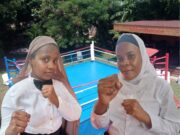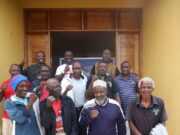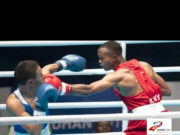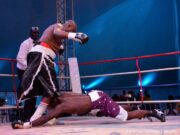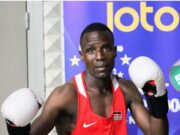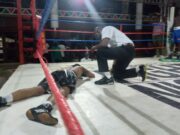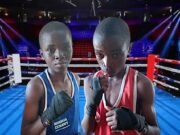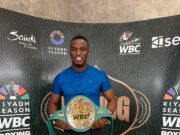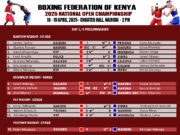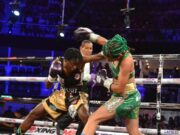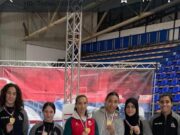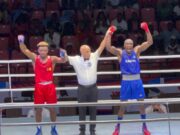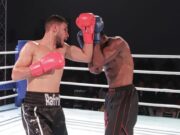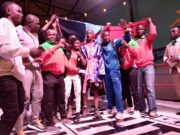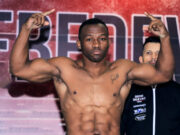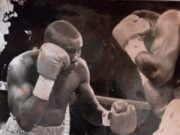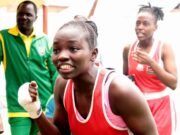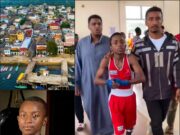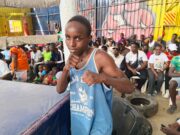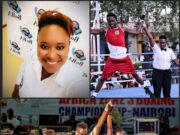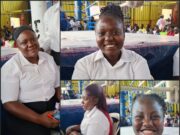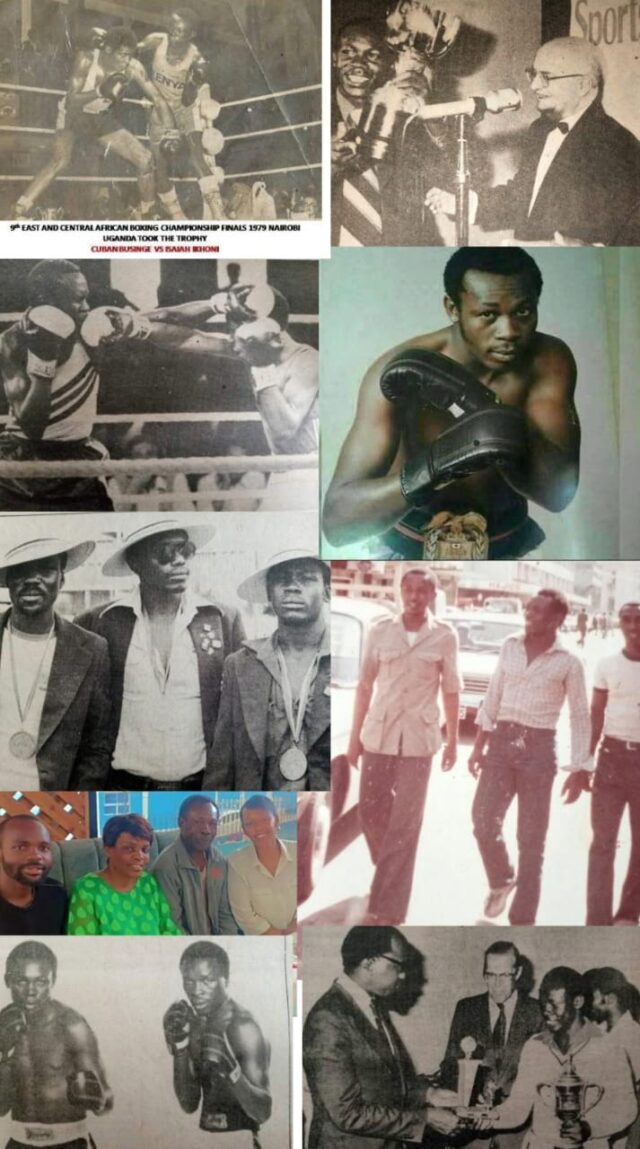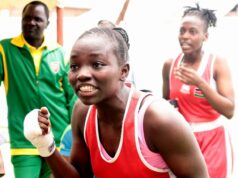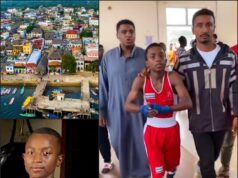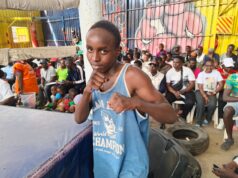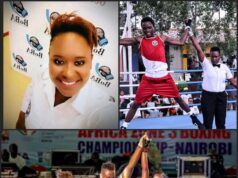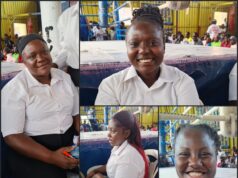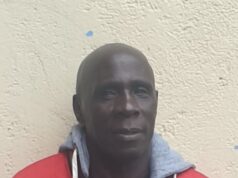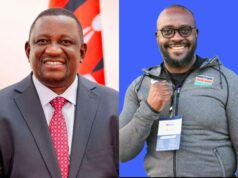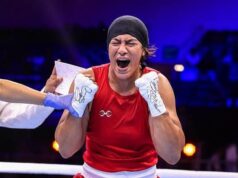FARE THEE WELL DYNAMIC ISAIAH IKHONI; YOU DID KENYA PROUD
▪️ The late Kenyan boxing icon will be buried on Saturday, July 19, 2025 in the compound of his house at Ongata Rongai
Isaiah “Danicho” Ikhoni had a short but a dazzling stint with Kenya’s national boxing team nicknamed Hit Squad.
Within a span of one year, the sensational rock-fisted Ikhoni had made the world to sit up and take notice with his eye-popping performance. He came with a bang and hungry for success.
Ikhoni burst into the limelight in 1979 when he made his international debut in the East, South and Central Africa (FESCAABA) Boxing Championships at Nairobi’s City Hall, winning a gold medal in the bantamweight division.
By then he was employed at Kenya Breweries who acrimoniously poached him from the famous Nakuru Amateur Boxing Club dubbed the Home of Boxing having produced some of Kenya’s most accomplished boxers.
After seeing off a Zambian boxer in the semi-finals, Ikhoni outpointed Uganda’s Cuban Businge in the final.
His remarkable international debut at the City Hall marked the beginning of a success story for the Nakuru ABC boxing gem.
Commenting on the 1979 Fescaaba final with Ikhoni, Businge who is now spending time advising upcoming boxers including his son Champion Businge, the former Ugandan international boxer says: “Although our fight should have been more explosive, I still wonder to this day why the gold medal at stake could not motivate me enough to take the fight more seriously.”
Ikhoni’s tact and endurance was evident as he kept Businge under pressure from the first to the third round. He was indeed Kenya’s revelation in the 1979 boxing season, and obviously destined for more glory in the squared circle.
Come 1980, Ikhoni started the season by beating Tanzania’s Gerald Isaac in Moshi and then scored his third victory over Businge in the first leg of the Brunner/Urafiki tournament in Nairobi.
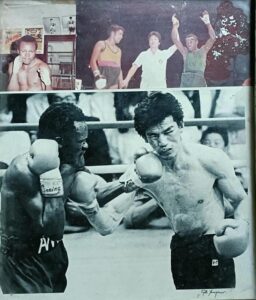
Ikhoni’s next stop was in Bangkok, Thailand, for the annual King’s Cup Championships.
Together with lightweight Patrick “Mont” Waweru, welterweight Kamau “Pipino” Wanyoike and heavyweight James “Demosh” Omondi the four of them powered their way to the finals.
Waweru and Wanyoike won gold medals with Ikhoni and Omondi returning home with silvers but Wanyoike felt Ikhoni should have won gold against South Korea’s Chul Soon Hwang.
“Ikhoni fought very well beyond our expectations because this was his first time in a big international tournament, he deserved to win a gold medal,” says Wanyoike who went on to become the first African boxer to win three consecutive gold medals in the King’s Cup Championships.
Ikhoni’s crowning moment was in the Golden Cup International Tournament at the Kenyatta International Convention Centre (KICC) in Nairobi, winning bantamweight gold through a second round stoppage win over Hector Vasquez of the Dominican Republic. He was voted the Best Boxer of the two-week event sponsored by the US government for countries which boycotted the Moscow Olympics.
The Kenyan was a bit shaky in the first round against the southpaw Dominican boxer failing to find the range. His team manager at Brewieries James Ondimu had to briefly leave the high table to come closer to his corner. He was not impressed by Ikhoni’s activity in the ring.
“Danicho fungua war! chimba tumbo! na umkaribie (Danicho was his nickname..Ondimu told him to fight his opponent and hit his body hard and make sure he’s closer).
As if taking the cue from Ondimu after a pep talk from coach Anjimbi, Ikhoni unleashed sporadic two-fisted onslaught on Vasquez finding the range and digging deep with body punches and then rounding up his attack upstairs. It did not take long before the referee waved off the fight in favour of Ikhoni.
“I feel good and inspired winning a gold medal and best boxer’s trophy,” Ikhoni told me in an interview for the Weekly Review/Nairobi Times publications at his North Mathare house he was sharing with Charles “Dixie Kidi” Oduori, a bronze medallist in the Golden Cup.
In addition to Ikhoni’s gold, heavyweight James “Demosh” Omondi was the other gold medal winner with featherweight Napunyi Oduori, lightweight Patrick “Mont” Waweru, welterweight Kamau “Pipino” Wanyoike and super-heavyweight Mohamed Abdulkah Kent settling for silver medals and three bronzes by light-flyweight John “Poison” Kamau, flyweight Hussein “Juba” Khalili and middleweight Charles “Dixie Kidi” Oduori.
So impressed was the chairman of the Amateur Boxing Association of Kenya (ABA) Major Marsden Madoka with the boxers’ superb performance in the Golden Cup that he organised a three-week tour of Germany, Denmark, Finland and Sweden. Charles Anjimbi was the coach assisted by 1972 Olympics bronze medallist Sammy Mbogwa and team manager David Kinyanjui.
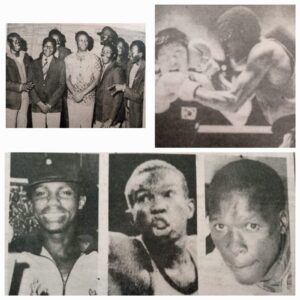
An attempt by the tour’s promoter, Boerge Anderson to have national team coach Peter Mwarangu included was thwarted by Madoka.
“Boerge requested us to include Mwarangu as a trainer but we refused since it was a Golden Cup team Tour, if he can pay for an extra ticket for Mwarangu it’s okay,” said Madoka.
Ikhoni maintained his sparkling performance in the tour, remaining unbeaten in seven fights including an inspiring victory over experienced Ugandan boxer Shadrack Odhiambo who was based in Sweden. Fearless Ikhoni moved up to light-weltetweight from bantamweight to challenge the Ugandan and beat him at his own game.
What a spectacular show it was for Ikhoni in the 1980 season which he climaxed with one of the most exciting bouts ever witnessed in Kenya boxing against his buddy Napunyi Oduori during the Breweries Sports Festival match against Prisons at Ruaraka’s Tusker Village Hall.
Boxing flat-footed, ring technician Napunyi had the crowd on its feet yelling with his lightning combinations while Ikhoni released his constant mixture of well-timed two-fisted flurries some of which Napunyi cleverly parried or ducked to uncork text-book counter-punching.
While some ring analysts felt Napunyi had done enough to win, to the two friends winning was not a priority.
“We just wanted to entertain fans with clean high class boxing,” said a smiling Napunyi, sentiments echoed by Ikhoni.
“Are they brothers? They really look alike,” one fan asked me obviously mesmerised by the exciting clinch-free thriller.
In other highlights, Ziwani-bred Aloice “Kid” Omondi scored an upset points win over Prisons’ African Games silver medallist Michael Mwangi, Pipino stopped James Njuguna in the third round after flooring him twice in the second and third round while Tom Okoth – the first Kenyan to defeat Uganda’s dreaded Vitalis Bbege during Prisons’ 1979 Scandinavian tour – stopped Titus Osumba in the second round and light-heavyweight Patrick Lumumba decked Breweries’ Dan “Monzon” Onyango twice enroute to a second round stoppage victory.
Ikhoni’s dominant show in the 1980 season saw him winning the Kenya Wine Agencies-sponsored Boxer of the Year and Sportsman of the Year Awards with Kamau Wanyoike the runners-up in the former award.
Ikhoni continued with his roller coaster show in the 1981 season culminating in turning professional with Napunyi in Japan in August.
His most significant achievements were in the King’s Cup Championships in Bangkok, Thailand and the President’s Cup in Manila, Philippines.
The awe-inspiring achievement of Ikhoni and his compatriots in Bangkok left the boxing world in shock and in disbelief that a team of only five boxers won the prestigious King’s Cup tournament against formidable opposition including Russia, one of the world’s top boxing nations.
To some fans in Bangkok that was like a miracle, and wondered how the five Kenyan boxers would be rewarded by the government for such a magnificent feat.
“We told them we’ll get nothing, they couldn’t believe it,” said Wanyoike He was right. Not even a congratulatory message from the government was forthcoming.
On their return home, as usual we celebrated the victory in our own way at Armstrong Kasuku’s popular Garden Square, our meeting joint then.
There was Ikhoni, Pipino, Mont and Napunyi and other “mtaa” (hood) cheerleaders such as Fred Shiraku Wa Indeche aka Oredo Mundu a staunch boxing fan. We were joined by Ikhoni’s nephew and boxer Paul Mukhwaya with KDF then, and partied the whole night long dancing to the throbbing beats of the resident band Mangelepa whose lead vocalist Evani kept on mentioning the names of the Five-Man Army Kenya team. One of Ikhoni’s favourite songs was “Amua”. He would rush to the dance floor to shake a leg joined by his teammates when the song was on. Our table was a forest of drinks. Packed! As they say in Kenya chafua meza!!
Ikhoni’s gold medal in the President Ferdinand Marcos Cup tournament in Manila was more amazing. Despite an injury to his eardrum, he punched his way to the finals, outpounting South Korea’s Lee Hyun Ju. Welterweight Pipino and light-welterweight Ali “Ojukwu” Athumani – now based in the US – won silver medals with light-middleweight Aloice “Lesles” Muiruri bagging a bronze medal for Kenya to finish third overall.
Ikhoni first saw off an Australian boxer and then met stubborn Ray Arua of Papua New Guinea in the quarter-finals.
“That chap from Papua was really good and strong,” Ikhoni told me in an interview on arrival back home.
“He caught me with a heavy right punch in the first round, I thought that was the end of me.
“In the second round I went flat out for a KO. He threw his dangerous right aimed at my face but I ducked and countered with a heavy right cross to his solar plexus followed with a quick left hook to his jaw. I then stole a glance at his eyes and I knew he was feeling my punches.
“This encouraged me to hit him even harder with body and face combinations to confuse him. I then heard the referee shout stop!! The bout was over. I had won on Referee Stopped Contest in the second round.
“By then I was not aware I had suffered an injury in my left ear drum until I went to the dressing room. I started feeling as if there was some water in my ear. Could this be the end to my hunt for a gold medal? I asked myself. Our team doc told me I better retire if I wanted to save my ear from being blocked.”
Ikhoni was however pronounced fit to proceed to the semi-finals by the tournament doctors much to his relief.
He then squeezed a 3-2 points win over Tommy Ayers of the US in the semi-finals before outpointing the Korean boxer in the finals. His buddy Napunyi missed the Manila flight and therefore did not take part in the Presidents Cup.
Then came the big news. In one of our usual chitchats in town, they told me plans were at an advanced stage for them to turn professional. A Japanese promoter, Kenji Yonekura, was impressed by their brilliant show in the King’s Cup in Bangkok.
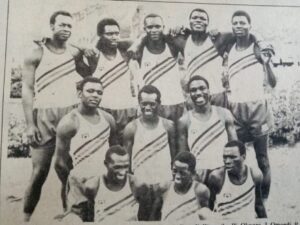
_Back row from left is super-heavyweight Mohamed Abdallah Kent, welterweight Kamau Wanyoike, light-heavyweight Wandera Okwaro, heavyweight James Omondi, light-middleweight Patrick Lumumba._
_Mid row from left middleweight Charles “Dixie Kidi” Oduori, bantamweight Isaiah Ikhoni, light-welterweight Ali Athumani._
Front left lightweight Patrick Waweru, light-flyweight John Kamau and featherweight Napunyi Oduori. Missing in the picture is flyweight Hussein Khalili.
I was then a rookie Sports Journalist with Hillary Ng’weno’s-owned Nairobi Times/Weekly Review publications. That was a big exclusive story for me.
As close buddies they promised me that I would break the story to the world at the opportune moment. The day finally came. They had finalized everything and were to jet out of the country for Tokyo, Japan, on August 16.
Nairobi Times was a weekly newspaper published on Sundays only. And on August 15, I was on top of the world banging my world exclusive on our portable typewriters at our offices opposite Jeevanjee Gardens.
Bang! The following day that was our lead story in our sports page at the back : Napunyi, Ikhoni Turn Professional.
Photo design by Duncan Kuria aka Sugar Ray
To be continued on Saturday, July 19, 2025.


